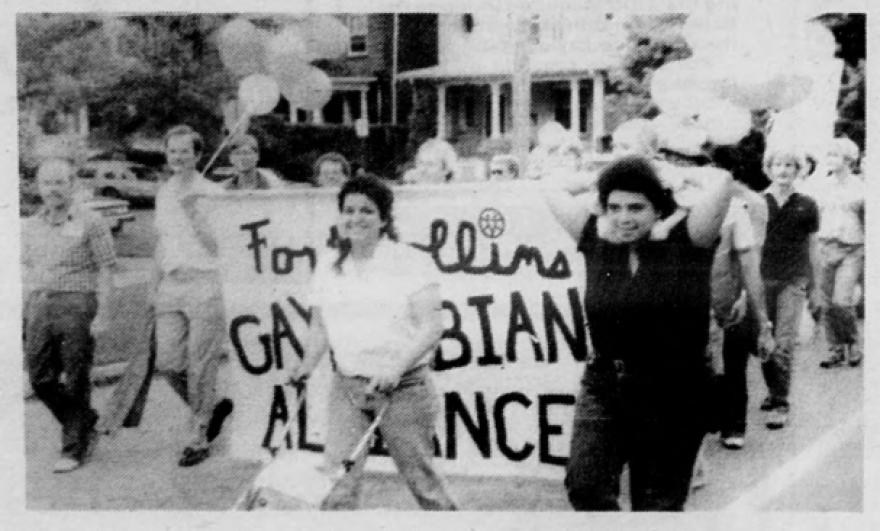Northern Colorado is celebrating Pride this month, and one initiative is focusing on the impacts LGBTQ+ people have had in the region. The Northern Colorado Queer Memory Project was founded in 2021 to share their stories.
KUNC's Samantha Coetzee spoke with founder Tom Dunn about the project. Dunn has been studying queer history since 2005.
Interview Highlights:
These interview highlights have been lightly edited for length and clarity.
Samantha Coetzee: So, to start, can you talk a little bit about why you created the Northern Colorado Queer Memory Project?
Tom Dunn: The Queer Memory Project is in response to a long-standing problem across the country and across the world, and that's the inability of LGBTQ folks to have access to their past and to have access to their memories. There's a bunch of reasons for that, but I've found that it's particularly true in parts of the country that are not major metropolitan areas, parts of the country that are far away from the coast.
And so, a lot of LGBTQ youth and a lot of LGBTQ adults in this part of the country end up thinking wrongly that there is no LGBTQ history here. And so part of the work of the Queer Memory Project is to do that recovery work, to preserve those memories, to rediscover lost memories, and then, most importantly, to share those out back into the community and also to send a positive message to LGBTQ people living in northern Colorado today that this is a place that's always been a little bit queer.
Coetzee: Absolutely. And as you mentioned, the project really does focus on the queer history in smaller cities and towns in this area. Why did you decide to focus more on rural parts of the state?
Dunn: There are other great organizations and institutions in the state that have done really good work in the last couple of years to tell the story about Boulder's LGBTQ history or Denver's LGBTQ history. But other parts of the state have really not had that attention. Partially, that's because there hasn't been time and energy and resources there to do that work.
And so I'm positioned at Colorado State University, and that gives me some resources to do that. And so we really think it's important for us to step into that void and make sure those stories are preserved before they're lost.
Coetzee: And we're talking a lot about stories here. And I'm also thinking about the archival component of this project. Can you just touch on why it's so important to share stories of the past?
Dunn: Well, absolutely. Sharing stories of the past is always important for one reason. As a communication scholar, which I identify as, it's the raw materials we use to make arguments about our present and, the future that we want to be, the future that we want to have. The stories of our past help shape the stories of our past. Help us remember the challenges that we face. They help us understand the challenges we're likely to face in the future.
They give us inspiration in difficult times to come together and know that we can overcome obstacles again when we run into them. And that's true both at the community level but also at the level of individuals.
We have an entire generation of LGBTQ young people who are charting their own queer lives right now, who are facing headwinds nationally and regionally, laws that tell them not to talk about who they are, not to try to understand this kind of information about themselves and who they want to be. And so, having these resources available to communities, but also to individuals who are making their own journeys of self-discovery, is really vital and really important.
In some ways, we hope it saves lives because not being able to know your past can be a death sentence both to individuals and communities.
Coetzee: Briefly, what are you hoping people will take from this project?
Dunn: My hope is, as I said before, that people recognize northern Colorado is a rich and complex and interesting LGBTQ place, that there have been powerful and important LGBTQ lives here, and that this community owes it to the LGBTQ people who have been pioneers here to continue to make progress towards making Northern Colorado an LGBTQ welcoming and inclusive place.



